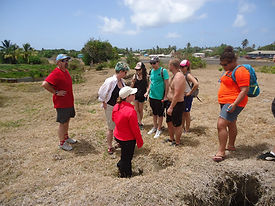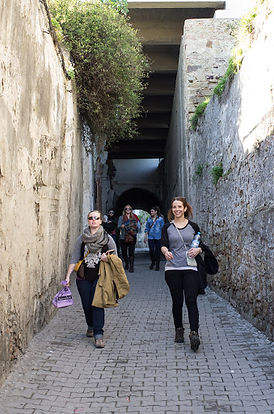Teaching Online
Engaging with students can be one of the most rewarding aspects of working in higher education. In the classroom, you get to see the “ah-ha” moments when concepts really click, participate in interesting and thought-provoking discussions, and facilitate group-learning exercises and activities. With online courses, achieving these kinds of experiences (for both instructor and students) might seem a little more challenging but that doesn’t mean they aren’t any less valuable to the learning objectives of the course.
For one, online students devote a lot of time and energy to completing online class material and so should their instructors. If the instructor doesn’t care enough to show up then why should students? By regularly posting announcements and interacting in discussion boards throughout the semester, I show students that I care about their learning experience and that their participation is valued, beyond simply turning in assignments or taking tests.
Second, as a relatively recent graduate myself, the worst online classes I had were those where the instructor just assumed you’d figure it all out on your own and when you contacted them for help, they would simply refer you back to the chapter in the textbook. Online students often have super busy lives so knowing there is a real person on the other end with a name you know, a face you can recognize, and a voice you’ve heard can make a huge difference. In all my classes, I want students to know who I am, and that my sole purpose is to make sure they have a positive and productive learning experience. Videos, pictures, and all the neat little apps and tools available to us (like VoiceThread) can communicate personalities and genuine desire to help so much more than plain text.
Finally, to put my money where my mouth is, so to speak, I diligently provide detailed, individual, and timely feedback on each assignment. For example, I regularly teach a senior-level (Geographic) Research Methods course where students submit individual sections of their final paper every weekend. To encourage stronger performance, I regularly have one-on-one contact with most every student to make sure they’re on the right track, the results of which are reflected in the quality of their work and consistently positive student feedback at the end of each semester.

Anonymous Student Reviews:
"I got more out of this class then any other class I have taken at ASU"
-- Student from Geographic Research Methods
"I love how passionate and excited the instructor was to talk and teach us the information. It makes a big difference."
-- Student from Introduction to Physical Geography
"Dr. Groom is awesome. Her lectures were full of interesting things and so much fun to watch. Informative and entertaining don’t always fit seamlessly together, but in this course, they do. I wish she taught other (non-capstone) classes online because I would take them all."
--Student from Geography of the Middle East and North Africa
"Professor Groom was awesome teaching the materials and boosting my appreciation of the content."
-- Student from Geographic Research Methods
"This course has been my favorite to date. I have an amazing appreciation for North African cultures embellished by this course. Professor Groom is a wonderful communicator and her lectures left me with a true understanding of the subject matter."
-- Student from Geography of the Middle East and North Africa

Teaching in the Field
Beyond the classroom (or in my case the internet), I have also had the profound pleasure of taking students and volunteers into the field for a bit of good old fashioned hands-on learning. As a firm believer in an applied approach to education—integrating the "so what?" and "when will I ever need to know this?" directly into the lesson plan—there is no better classroom than the big messy world itself. Getting students out of their comfort zones and into reality via applied fieldwork, workshops, or intensive study abroad programs can be utterly life changing. To this I can personally attest.
University life should center on challenging yourself, widening your world views, being uncomfortable in a safe environment, seeing how hard you can actually work, and being humbled by really learning how much you don't know. Being part of that process by getting students out in the field is one of the most satisfying and rewarding parts of my job!
Travel the world and play in the dirt
for a living? Yes, please!

